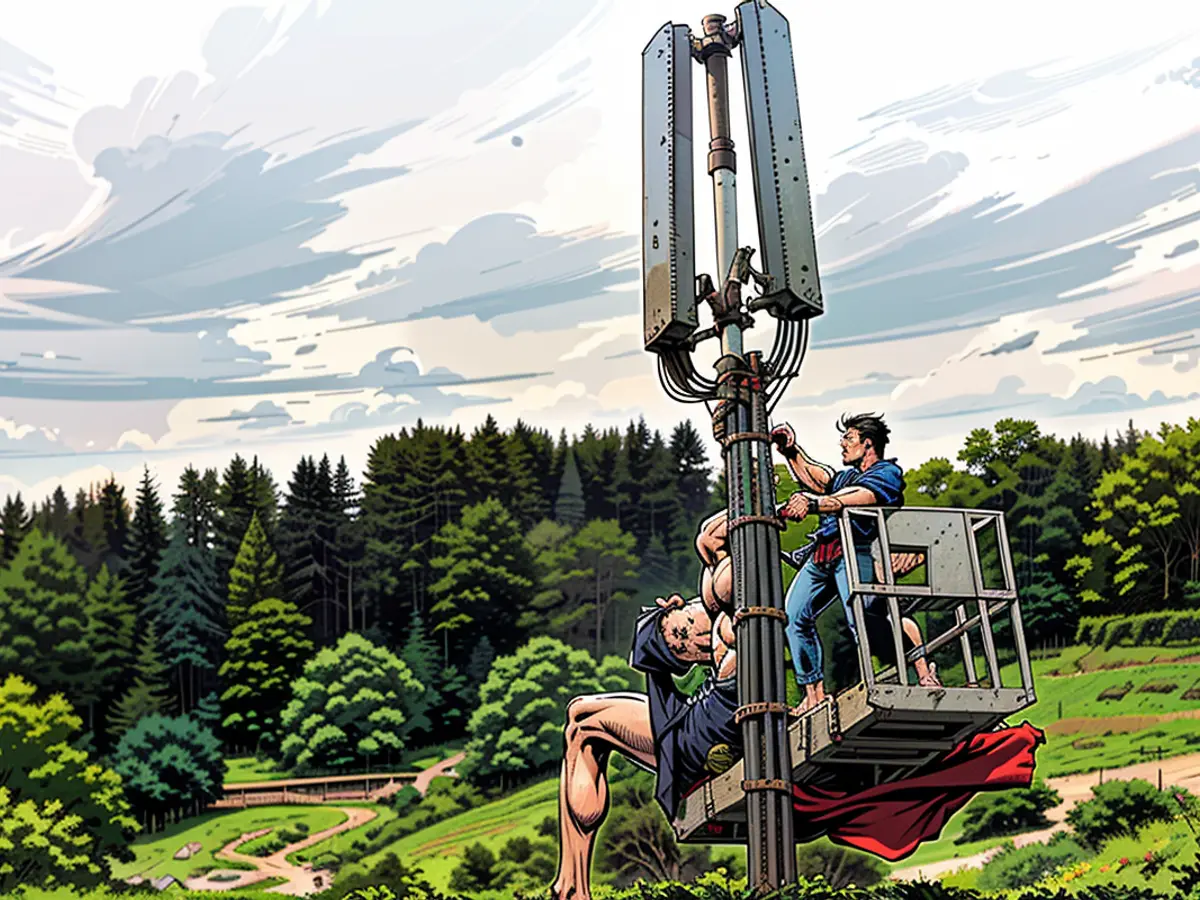O2 wants to build more cell towers in nature reserves
So far, mobile phone masts are rarely approved in German nature reserves by the authorities. This could change with a new law - and a provider is already poised to expand its network.
To ensure its mobile network is widely available in Germany in the future, the mobile network provider O2 Telefónica wants to install more antennas in nature reserves. So far, this has been hardly possible because the authorities have not given the green light, said O2 CEO Markus Haas in Munich.
A bill recently passed by the federal government to accelerate network expansion could change this. "We need these areas," says Haas, pointing out that four percent of Germany's area is nature reserves. By the beginning of 2030, established mobile network operators Deutsche Telekom, Vodafone, and O2 Telefónica must each cover 99.5 percent of Germany's area with a download rate of 50 megabits per second, as stipulated by the Federal Network Agency.
The separate federal law on accelerating telecommunications network expansion is intended to help make this goal achievable. It states, for example, that mobile network expansion is in the "overriding public interest" - thus, it would be legally equivalent to the construction of wind turbines. Furthermore, telecommunications companies will be allowed to start expansion work two months after submitting an application, even if the permit is not yet issued - unlike the current lack of time pressure on the responsible authorities.
Long wait for building permits
The implementation of this law is important, emphasized O2 manager Haas. "We currently have no claim that a building permit is issued promptly." Currently, waiting times can be very long. "It's not uncommon for it to take eight to nine months, and even longer cases can take over two years."
In recent years, many applications for antenna masts in nature reserves have not been submitted at all. "It was difficult: The authorities always told us in advance: 'If you submit an application, the chances of success are very low.'" Telecommunications manager Haas hopes that the law will now also be finalized quickly. This could provide a boost for mobile network expansion in the coming year, he says.
O2 Telefónica presented business figures showing that while its revenue has stagnated, it has become more profitable thanks to efficiency measures. In the first half of the year, revenues were around 4.2 billion euros, a slight decrease of 0.1 percent. The adjusted operating result (Ebitda) increased by four percent to 1.3 billion euros. "We've made a good start to the business year 2024," said CEO Haas.
O2 Telefónica plans to expand its mobile network into nature reserves by installing more O2 antennas, taking advantage of a new law aimed at accelerating network expansion. Due to the lengthy waiting times for building permits, Haas believes that the implementation of this law will significantly speed up the process, boosting mobile network expansion in the coming year.








